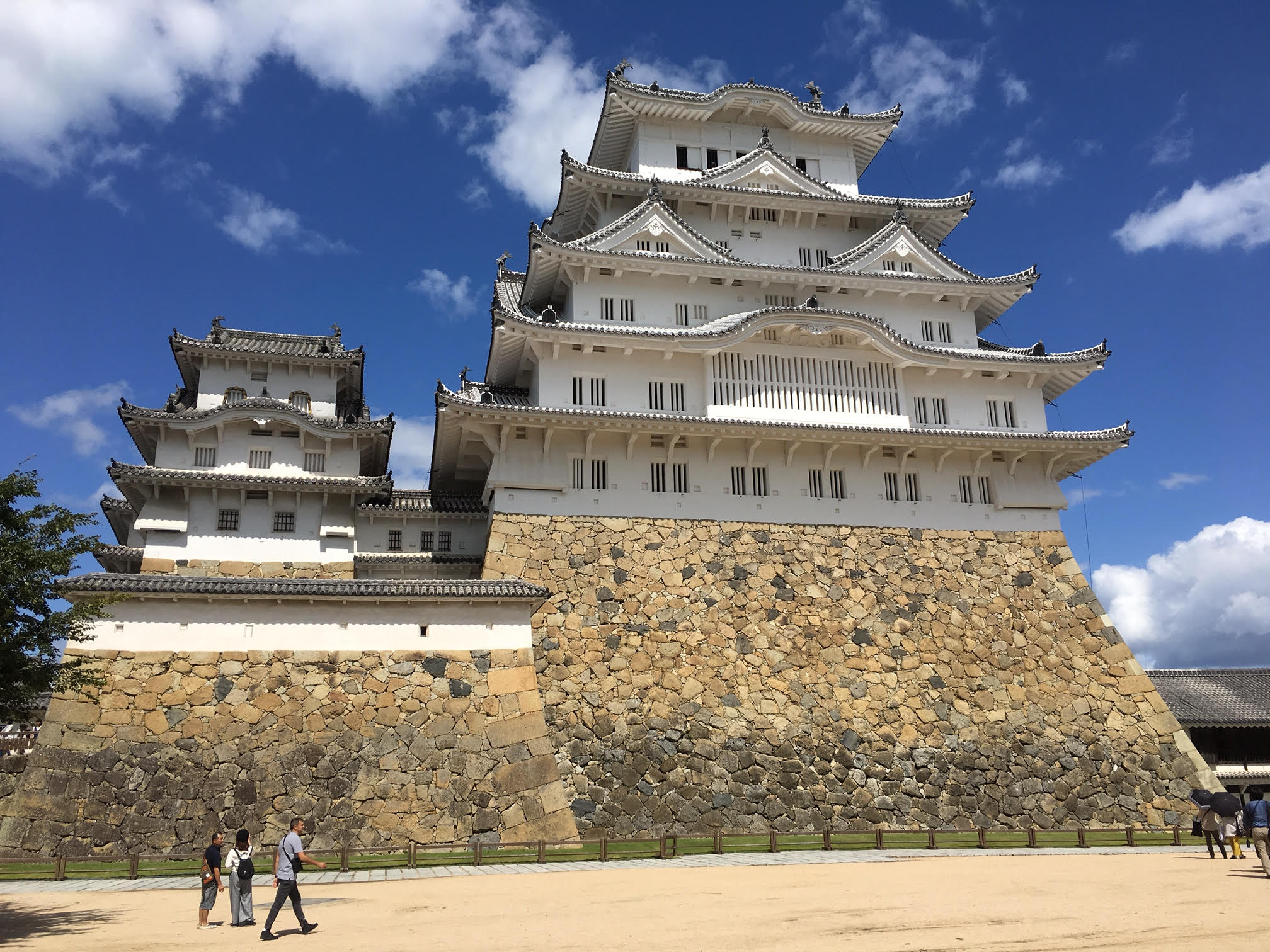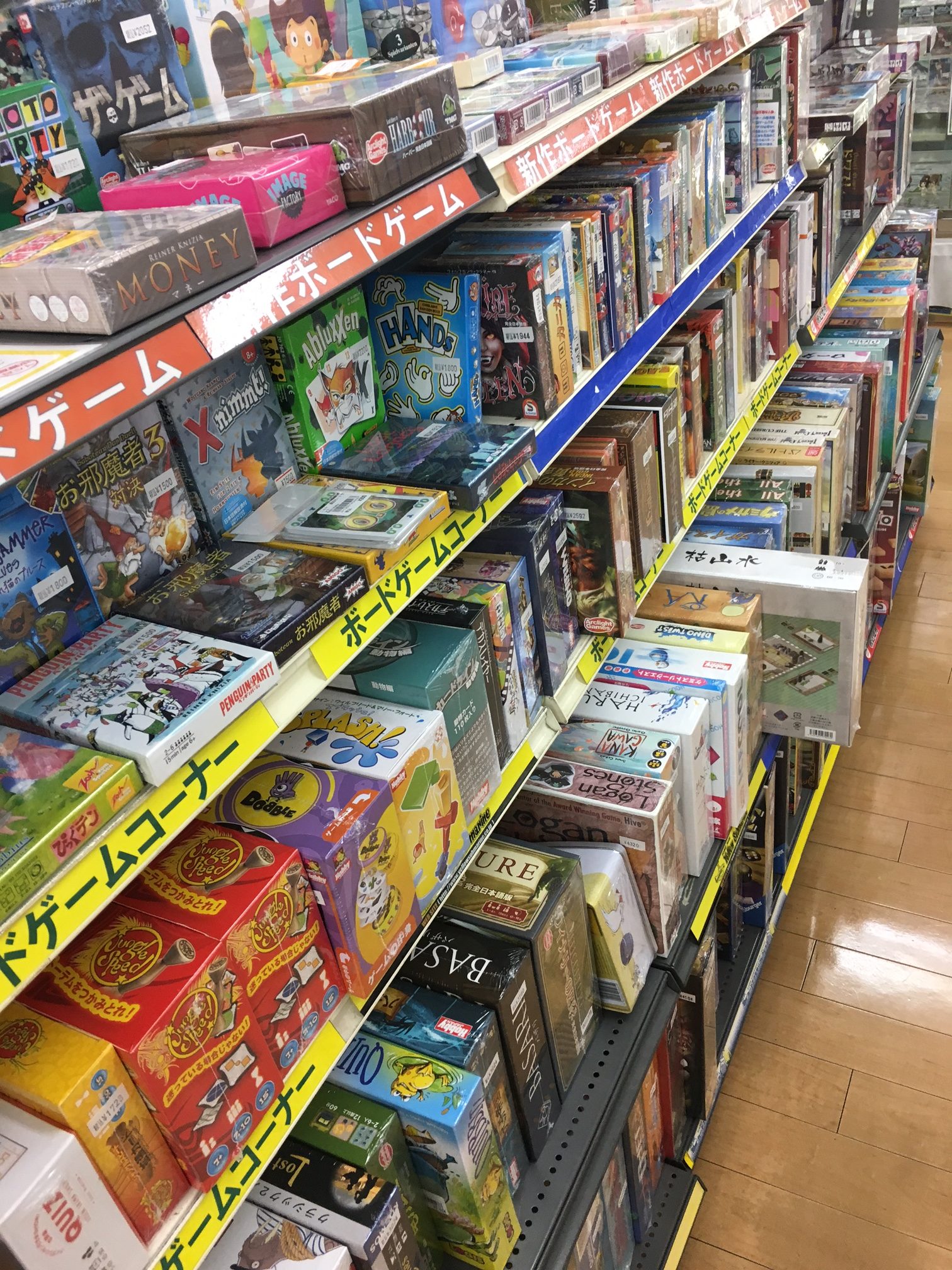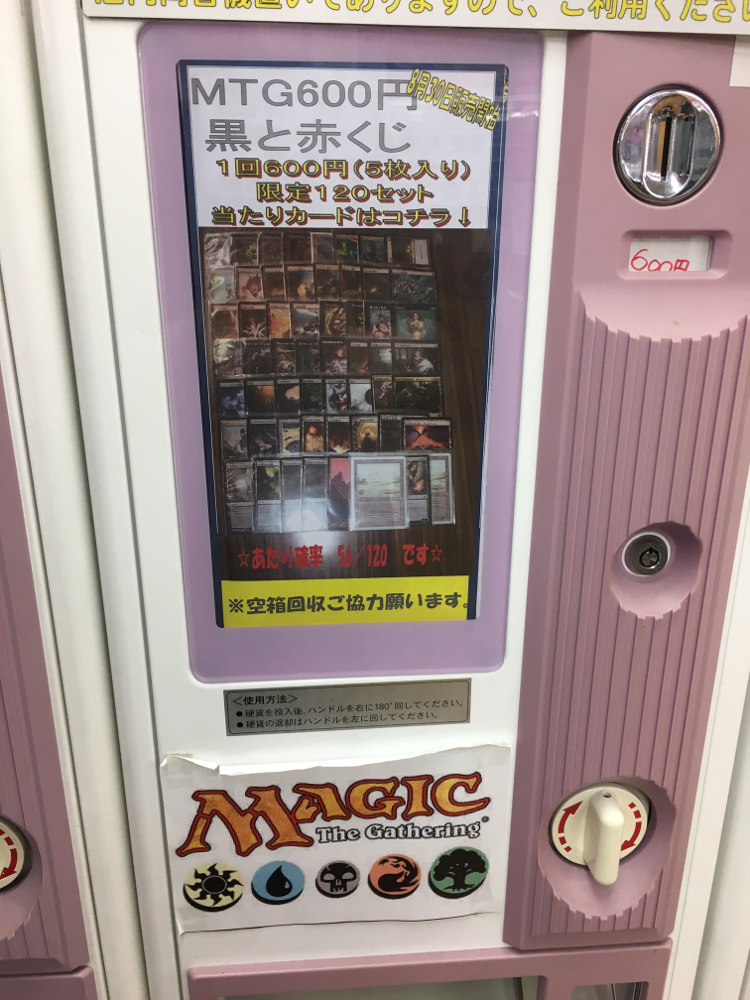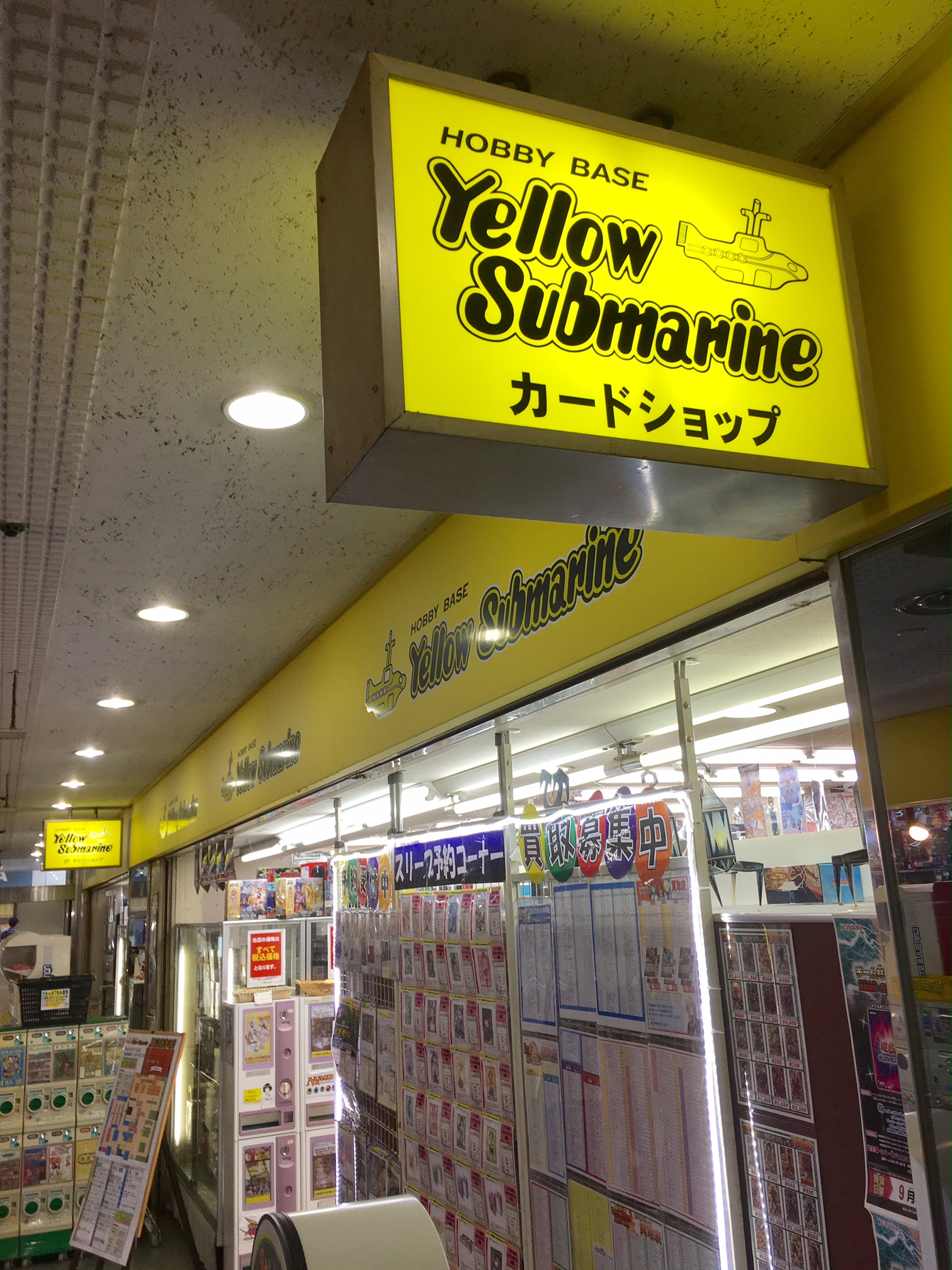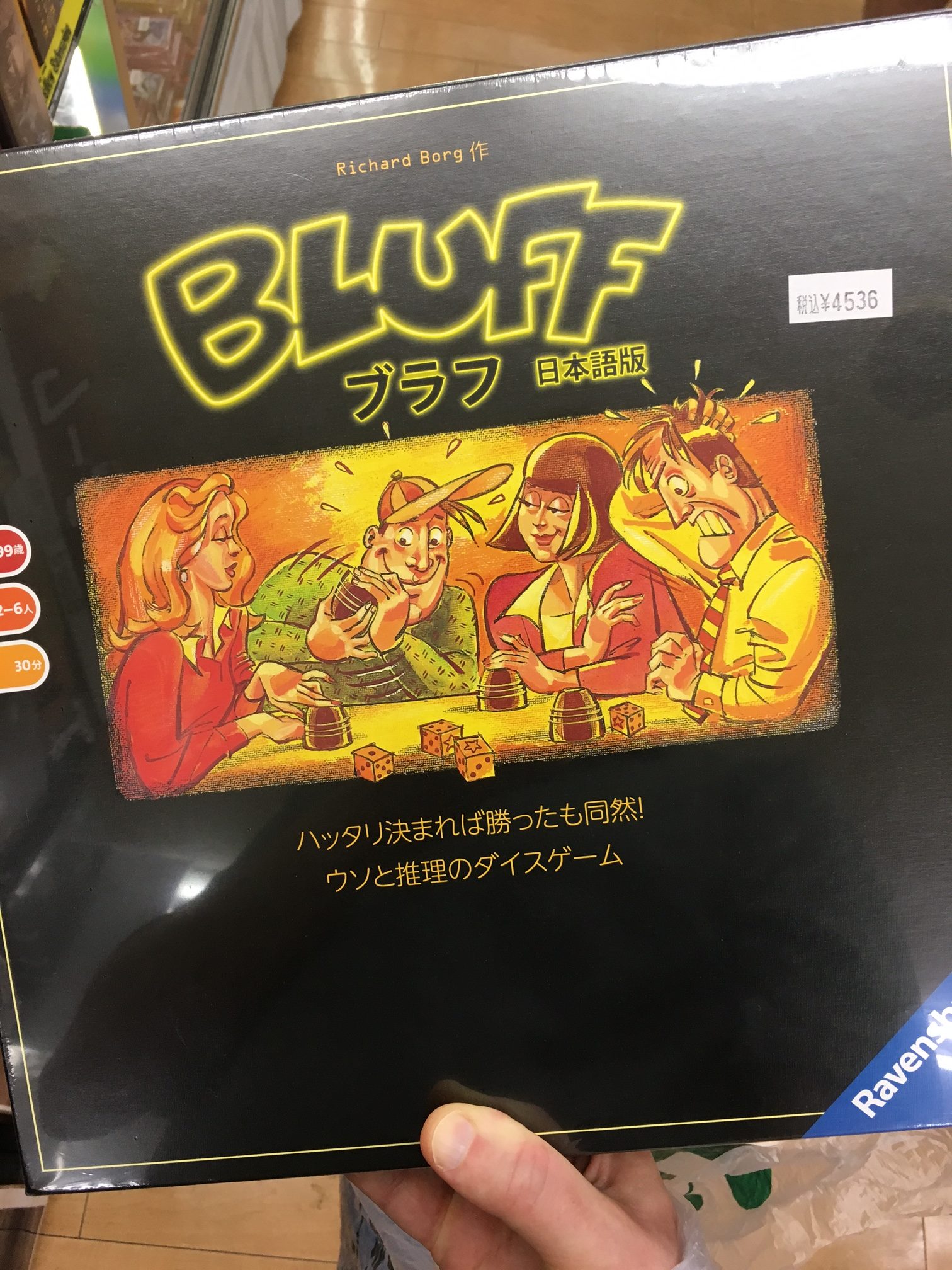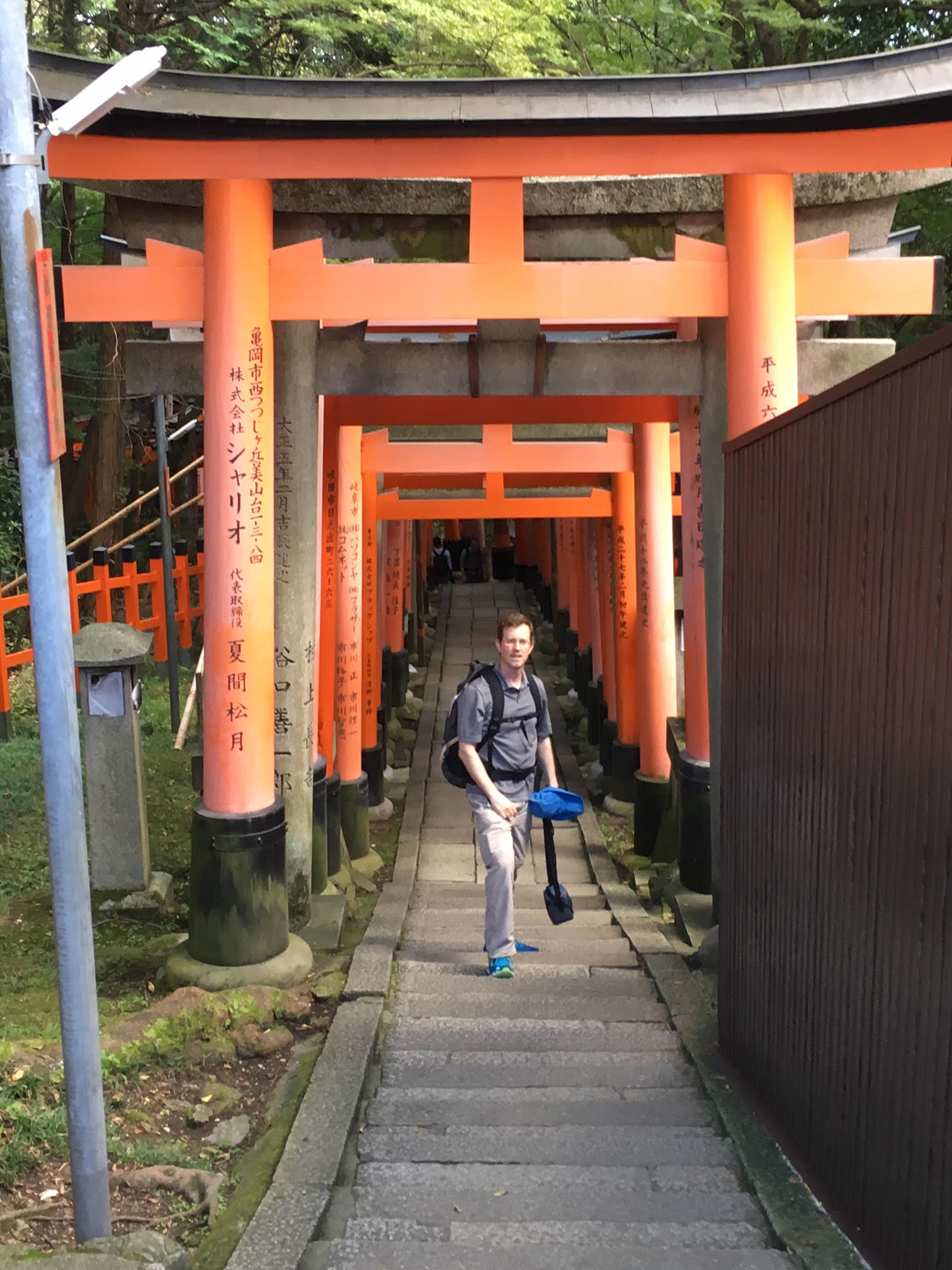Normally, Role Selection is an interview series in which author Matt Golec chats up folks who work, live, and play board games in a variety of ways to learn about the roles in the hobby they’ve chosen. At present, Matt is on sabbatical overseas, but he has offered to send periodic gaming updates from around the world during his time away.
It is incredibly hard to find anything in Japan.
Hang on, let me fix that statement: It is incredibly hard for me to find anything in Japan.
A few weeks ago, and not too long after my family and I arrived in Kobe, Japan, where my wife is a Fulbright Scholar (and my son and I are madly riding her coattails), I was looking for a bookstore.
Google Maps, my trusted companion, told me it was nearby. Addresses are hard (again, for me) here because of the Japanese system of organizing addresses by city blocks as opposed to streets. Also, I only speak a few Japanese survival phrases, and I read even less. I can’t find a business by its sign, and I can’t ask anyone for directions.
So I wandered. I wandered around the area Google Maps said the bookstore was in, and I poked my head into various shops within the densely-packed shopping district, but with no success. Finally I stumbled upon an escalator, which I took up. And up. And up. Until it reached the 6th floor, which was huge and stretched as far as the eye could see and was full of the bookstore I’d been looking for.
This is what living in Japan sometimes feels like. You’re looking for something, you know it’s big and you know it’s nearby, but you just can’t find it.
Kobe Update October 2017
Which brings me to this board game dispatch from Japan. I’ll share a few observations and photos, but understand that I’m not seeing the whole picture. I’m just a temporary visitor, and the real story of board gaming in Japan is like that bookstore I was looking for: hopefully nearby but nothing I can put a definitive finger on without an amount of searching that my time here will not permit.
That said, here’s some stuff (I think) I’ve learned:
1. Japan is bigger that I realized before coming here – it’s about the same geographical size as California, but with three times as many people. It’s a densely-populated country, which means small apartments, small houses, and small board-game collections. People just don’t have room for hundreds of games.
One group of gamers I met had an interesting solution to this issue: they kept a collection of games at the bar where they played. The bar was tiny by U.S. standards, though normal for Japan – maybe six barstools and a small table that could seat another six people. Yet the bar’s closet was stuffed with games, and as long as the Karaoke machine wasn’t on too loud, it was a fine place to gather and play.
2. I’ve gotten the sense that people don’t play games as much in their homes, perhaps due to the smaller sizes. Bars, community centers, game stores, and cafes were the places I saw people gaming. That said, as I wasn’t here long enough to be invited to game in someone’s home, so treat this more an anecdotal observation than any firm fact. Still, with all the small restaurants and bars alongside huge shopping districts, it feels like people are much more social outside their homes than they are inside them.
3. Card games are big here, perhaps because they take up less storage space. I browsed stores that had endless display cases of Pokemon, Duel Master, and other popular collectible card games I’ve never heard of. There was even a vending machine (Japan loves its vending machines) that spat out Magic and other CCG card packs.
4. Similar to many parts of the US, I didn’t see a lot of exclusive board game stores. Stores that carried board games also carried a ton of CCG cards, statues of popular anime characters, manga, and otherwise geeky toys.
The board game titles I saw were mostly familiar as well, though there were plenty of Japanese game companies represented on the shelves. Some such games were printed entirely in Japanese, while others were English printings with Japanese translation inserts. Surprisingly, prices there were mostly in line with what I see in the U.S., and also like in the U.S., people buy a lot of their games from Amazon Japan to save a few extra Yen.
5. The language and cultural barriers for people visiting Japan are indeed significant, and that can make playing board games as a foreigner both challenging and rewarding. I expected to meet more Japanese when playing games here, but the majority of people I played with were from the expat community.
Because of the language barrier, I couldn’t just drop into a game cafe and join a random pick-up game. Many Japanese speak a little bit of English, and they have a deserved reputation for being helpful – the first night we arrived in Japan, stumbling out of the train station with our eyes wide and bleary with jet lag, a young Japanese man kindly approached us to ask if we needed any directions (we absolutely did).
But because I don’t speak Japanese, I’d slow down any game I’d play in, and I wouldn’t be able to engage in the social mores that are so important to enjoying a gaming session. Communicating through the language barrier is hard – rewarding, but hard. Though there were some nice exceptions, the groups I played with tended to be comprised entirely of kind and welcoming expats from the U.S., Canada, Australia, Sweden, and Spain. All of us foreigners living and working – and ultimately gaming – in Japan.
6. Speaking of which, many of the expats I’ve met in Japan came here to teach English. Thanks to them, I learned another valuable gaming lesson: if such folks ask you to play word games for money, you might be safer waiting in line for the Karaoke machine.
That’s all for now. Thanks for reading! Stay tuned for my next update hopefully in the weeks ahead.
Matt Golec is game designer with a background in print journalism. Combining these skills, he aims to explore and give voice to the many different jobs within the hobby industry that don’t frequently get reported on. He can be best reached via Twitter.
You can discuss this article and more on our social media!

